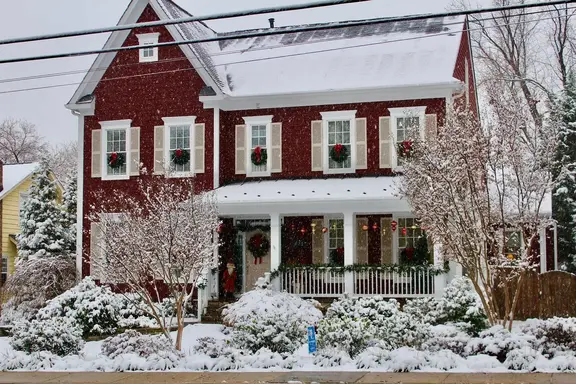Hybrid Inverters 101
What is a Hybrid Inverter?
Hybrid inverters are an essential component of modern solar power systems. At their core, they act as a bridge between a solar panel (PV) array and the electrical grid or a battery storage system. Unlike traditional inverters, which only convert the direct current (DC) generated by solar panels into alternating current (AC) used by home appliances, hybrid inverters go a step further. They not only perform this conversion but also manage the flow of electricity to and from battery storage systems. This dual functionality makes hybrid inverters a key component in both residential and commercial energy storage systems, enhancing the efficiency and versatility of solar power systems.
Hybrid Inverters vs. Other Solar Inverters
To appreciate the innovation behind hybrid inverters, it’s essential to understand how they differ from their counterparts: standard string inverters and microinverters.
- String Inverters: These are the most traditional type of solar power inverters, converting DC from solar panels into AC for your home. However, they lack the ability to store solar energy for later use because they cannot utilize batteries.
- Microinverters: Installed at each solar panel, microinverters convert DC to AC at the source. While they improve efficiency with issues of shading or panel orientation and allow for panel-level monitoring, they do not directly integrate with battery storage.
Hybrid inverters stand out by combining the functionality of a string inverter with a battery inverter. Not only can hybrid inverters convert DC to AC, but they can also store excess energy in batteries for later use, making them uniquely versatile and efficient.
The Benefits of Hybrid Inverters
Hybrid inverters offer several advantages to solar power systems to maximize their energy independence and efficiency:
- Enhanced Energy Storage: They allow for direct energy storage in batteries without needing a separate battery inverter, storing surplus solar energy for use at night or during power outages.
- Improved Energy Efficiency: Homeowners and commercial businesses can reduce their dependence on grid power, particularly during peak demand times when electricity rates are highest, to save on energy bills.
- Flexibility and Scalability: These systems can be scaled and stacked based on changing energy needs or budgets.
- Simplified System Design and Installation: The enhanced and integrated functionality of hybrid inverters simplifies the installation process, helping to reduce costs and space requirements.
- Future-Proofing Energy Systems: They help homeowners and businesses adapt to shifts in the energy landscape, creating efficiency, resilience, and long-term cost-effectiveness.
Real-World Examples
- Homeowners can not only cut their energy bills by up to 70% but also reduce their dependence on grid electricity to help drive energy resilience and decarbonization.
- Businesses can create reliable emergency backup power for grid outages or planned power shutoffs, reduce operational costs through energy savings, and meet renewable energy and sustainability goals.
- In more remote areas, or locations with limited/unreliable access to grid power, hybrid inverters with battery storage can provide a reliable and continuous power supply.
 Sol-Ark® Hybrid Inverters for Homes & Businesses
Sol-Ark® Hybrid Inverters for Homes & Businesses
Residential Hybrid Inverters: Sol-Ark® Lite, Essentials, and Whole Home residential hybrid inverters are among the most advanced smart home energy systems in the marketplace. They are NEM 3.0 ready, battery agnostic with any 48V battery, offer a seamless uninterrupted power supply (UPS), and feature a modular architecture that allows for multiple inverters to be tied together and run in parallel to meet growing energy demands and needs.
Commercial Hybrid Inverters: Sol-Ark® 30K-3P-208V and 60K-3P-480V help businesses not only reduce electricity costs through solar self-consumption and the ability to earn additional revenue through grid services programs but also reduce installation costs through enhanced safety with integrated fire suppression features and hardware platforms.
As the adoption of solar power continues to grow, the innovation and efficiency brought by hybrid inverters will undoubtedly play a crucial role in shaping the energy solutions of tomorrow. Whether you’re considering the transition to solar energy or looking to optimize your current system, hybrid inverters are a step toward achieving greater energy independence and sustainability.


 Sol-Ark® Hybrid Inverters for Homes & Businesses
Sol-Ark® Hybrid Inverters for Homes & Businesses

